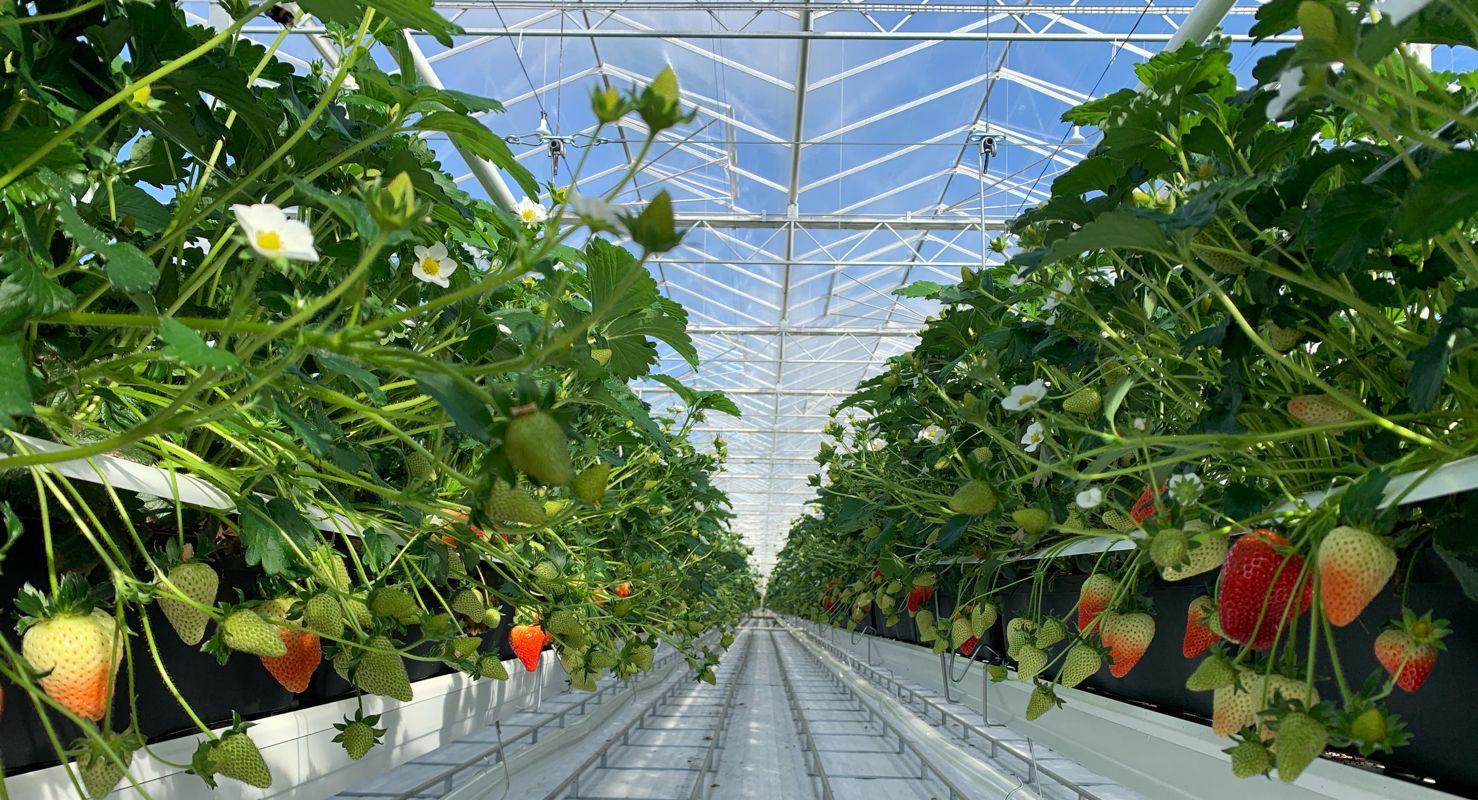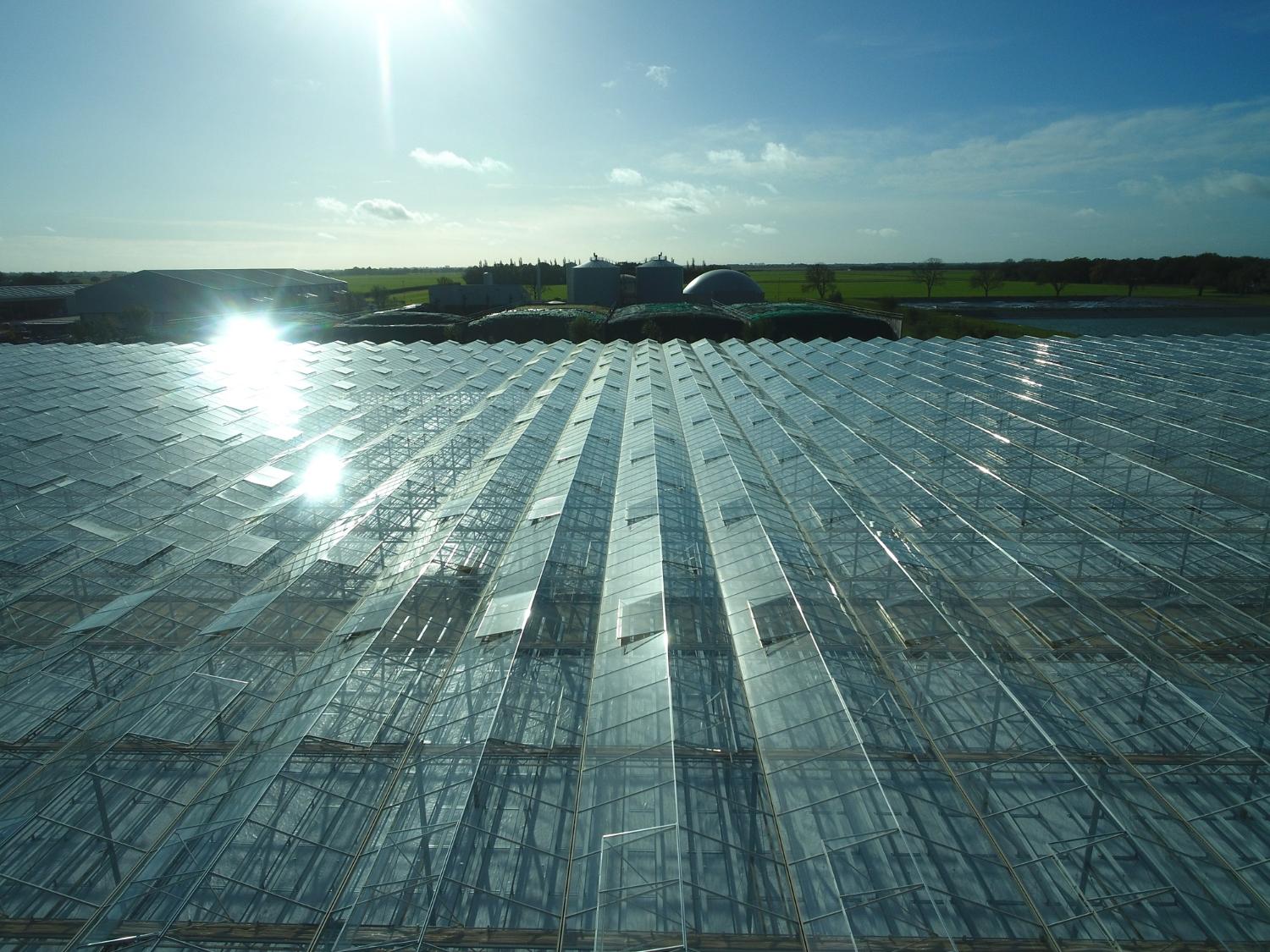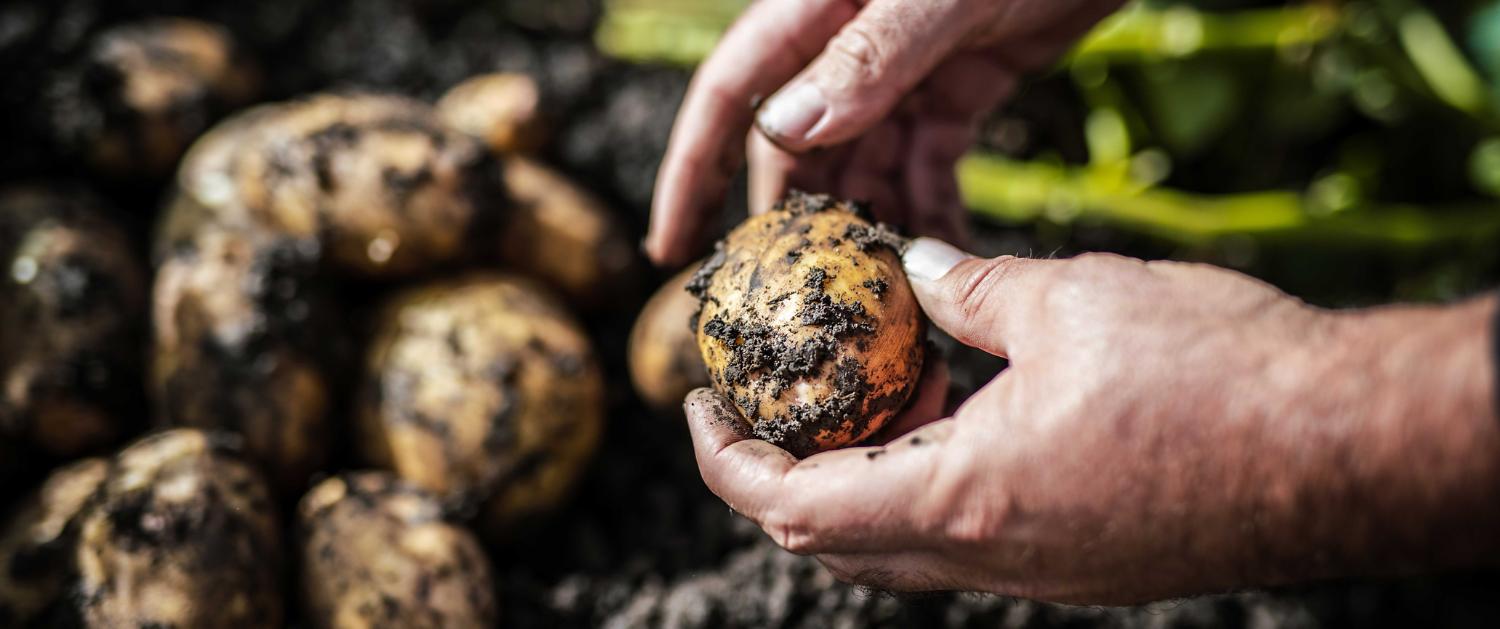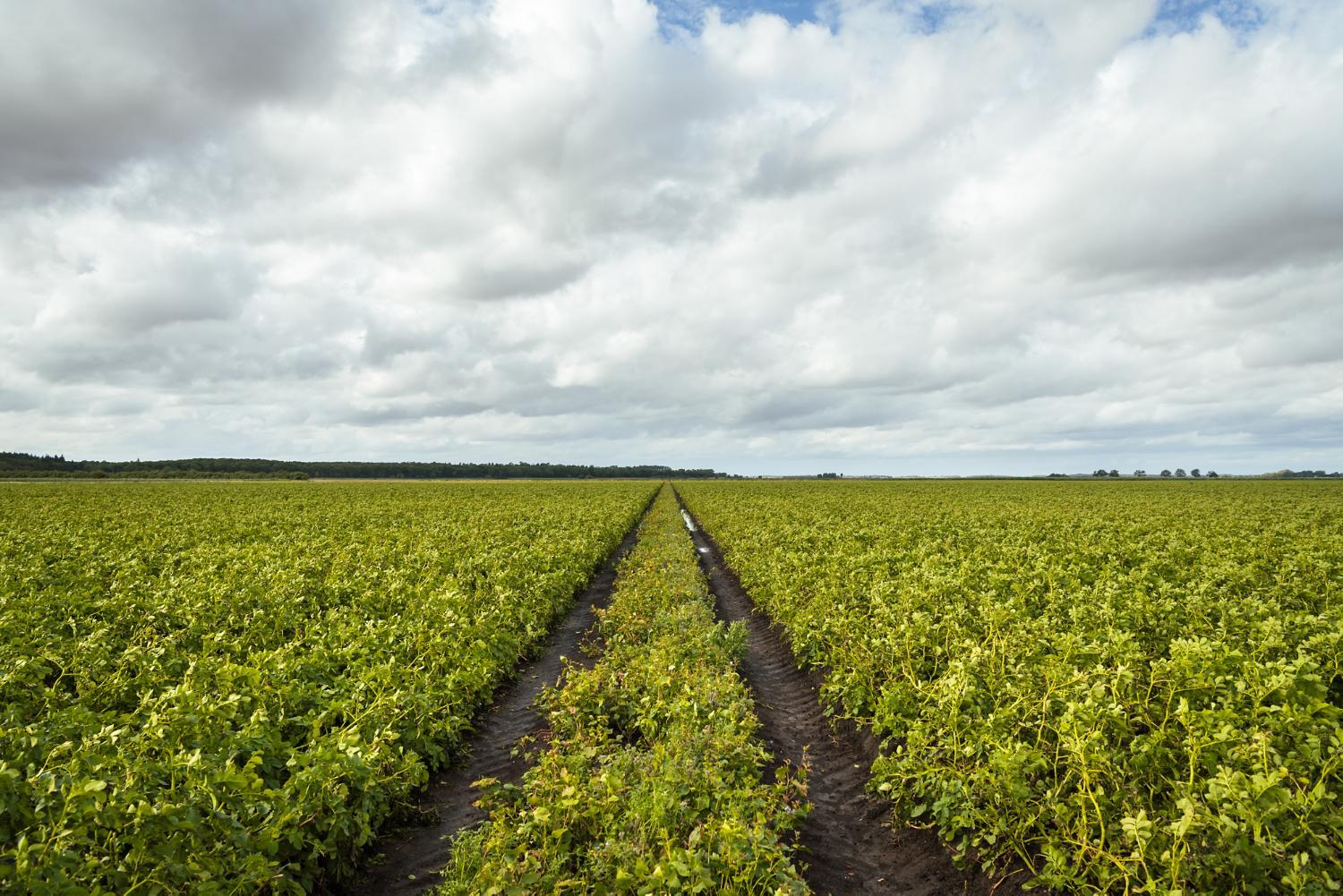

Dyson's British strawberries hit shelves in March
Shrinking food miles
Dyson Farming has picked the first strawberries from its new 15-acre glasshouse in Carrington, Lincolnshire. In doing so it supports the advancement of high-tech, sustainable farming in the UK, and avoiding unnecessary food miles that come from imported strawberries at this time of year.
Powered with renewable electricity and surplus heat from Dyson Farming’s adjacent anaerobic digester, the giant glasshouse is 424m long with 832 rows of strawberries and 700,000 strawberry plants which will produce 750 tonnes of strawberries each year for British consumers.
It is the latest addition to Dyson Farming’s highly efficient circular farming approach, which has helped make the Dyson Farming business carbon neutral.
“Sustainable food production, food security and our environment are vital to the nation’s health and the nation’s economy; there is a real opportunity for agriculture to drive a revolution in technology and vice versa. Dyson Farming is developing new approaches to efficient, high-technology agriculture, which we hope will lead to a commercially sustainable future.”
- Sir James Dyson
Extending the British growing season
Growing quality strawberries at scale, in a sustainable way, out of season, draws on the expertise and experience of the Dyson Farming team which now comprises of 176 people. For Dyson Farming this is the next step in producing quality British produce, at a commercial scale, by harnessing sustainable farming practices and technological innovation.
The glasshouse is lengthening the British strawberry season by growing quality strawberries at a time of year, early spring and late Autumn, when traditionally British strawberries are in very short supply. This will contribute to the UK becoming more self-sufficient in food reducing the air miles associated with imported fruit.
“I’m excited about the future of agriculture, despite the undoubtedly significant challenges it faces. The increasingly symbiotic relationship between our technology business and our farms will, I hope, yield novel new approaches to drive sustainability and performance. Material science, energy creation and energy storage are at the core of this and farming has much to give – growing materials and creating energy which can be used in a wider range of products. The parallels between the two businesses are greater than you might think since the future for both is dependent on investment in research, development, and continual improvement.”
- Sir James Dyson
About the Glasshouse
The anaerobic digesters produce gas which drives turbines producing enough electricity to power the equivalent of 10,000 homes. This green energy also powers the farming operation. There are two by-products from this process:
1. Digestate, which is applied to nearby fields as an organic fertiliser to improve soils and crop yields. It is expected that strawberries will be grown in the digestate in future as well.
2. Heat is captured and used to warm the glasshouse and encourage the strawberries to grow at a time of year when traditionally it has been too cold.
A climate control computer system adjusts the temperature in the glasshouse to maintain the optimal growing conditions for the finest quality crops. Rainwater is harvested from the glasshouse roof, stored in a lagoon and used to irrigate the plants. The hanging gutters, which hold the plants, ‘swing’ from side to side to allow 15% extra crop to be grown in the same area.
The site also has packhouse and cold store facilities allowing Dyson Farming to pick, chill, pack and deliver fresh fruit to the end customer as quickly as possible.
The glasshouse will incorporate new technologies as they evolve such as advanced robotic picking and advanced LED lighting that could increase glasshouse efficiency and lengthen the season further.

Dyson Farming: Innovative farming
Technology and innovation lie at the heart of modern farming; enabling farmers to boost productivity, increase efficiency and use fewer chemicals. Over the past eight years Dyson Farming has focused on increasing the sustainability and efficiency of its farms.
Data analytics, new crop rotations, cover cropping techniques, advanced drones and vision systems, targeted crop spraying, and green energy production are some of the ways Dyson Farming is incorporating technology into its farming systems.
Precision farming plays a vital role in protecting the health of the soil and the delicate ecosystem, for example, sensors measure the soil properties and crop characteristics to calculate which nutrients they need in real time, feeding that information directly to sprayers and other farm equipment.
The parallels between the Dyson technology company and the Dyson family’s farms are growing, so to cement this relationship, what was previously known as Beeswax Dyson Farming will now become simply, Dyson Farming.
Press contacts
-
Press Office
-






